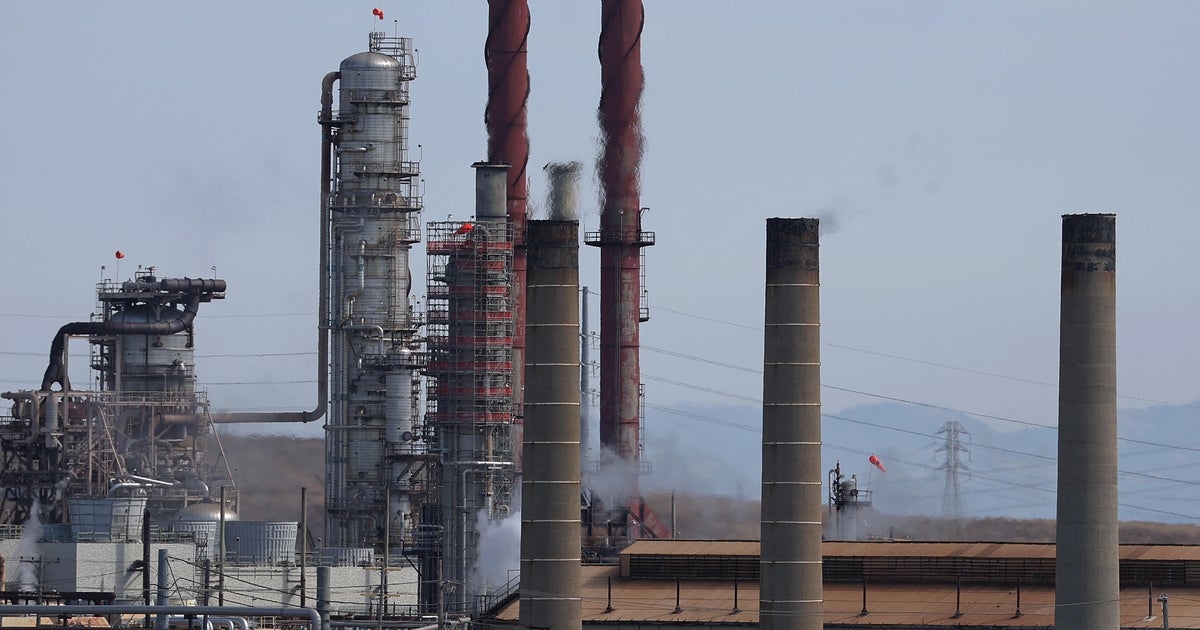$28 Trillion Climate Damage: Top 5 Fossil Fuel Culprits
The devastating cost of climate change is no longer a distant threat; it's a present reality. A recent study pegged the economic damage inflicted by climate change at a staggering $28 trillion, a figure that underscores the urgent need for a global shift away from fossil fuels. But who are the biggest contributors to this immense financial and environmental crisis? Let's examine the top five fossil fuel culprits driving this catastrophic trend.
The Dirty Dozen (and Beyond): Identifying the Major Players
While pinpointing precise culpability is a complex task requiring granular data across multiple sectors and decades, we can identify the major players based on cumulative greenhouse gas emissions and their contributions to global warming. The following list focuses on companies with a significant historical footprint and ongoing operations in fossil fuel extraction and production:
-
ExxonMobil: This energy giant, consistently ranking among the world's largest companies by revenue, has a long and well-documented history of involvement in fossil fuel production. Their vast operations contribute significantly to global greenhouse gas emissions, impacting climate change and the resulting economic damage.
-
Chevron: Another major player in the oil and gas industry, Chevron's extensive network of operations contributes to significant greenhouse gas emissions. Their ongoing commitment to fossil fuel extraction places them squarely among the top contributors to climate-related economic losses.
-
Shell: Shell, a multinational oil and gas corporation, has faced increasing scrutiny for its role in climate change. Despite recent pledges to reduce emissions, their continued investment in fossil fuel projects remains a major concern.
-
BP: British Petroleum, or BP, has a long history of oil and gas extraction. While the company has announced plans to transition to cleaner energy sources, its current reliance on fossil fuels still contributes substantially to climate-related economic damage.
-
Saudi Aramco: As the world's largest oil company by production, Saudi Aramco's contribution to greenhouse gas emissions is undeniable. Their role in supplying a significant portion of the global oil demand directly contributes to the $28 trillion in climate damage.
Beyond the Top Five: A Systemic Problem
It’s crucial to understand that these five companies represent only a small fraction of the overall problem. Numerous other companies, both large and small, across the coal, oil, and gas sectors contribute significantly to climate change. Furthermore, the impact extends beyond these corporations to include the governments and regulatory bodies that enable and often subsidize fossil fuel extraction.
The Economic Toll: More Than Just Dollars and Cents
The $28 trillion figure represents more than just a financial loss; it's a measure of human suffering. This cost encompasses:
- Extreme weather events: Hurricanes, floods, droughts, and wildfires are becoming increasingly frequent and intense, causing widespread devastation and economic disruption.
- Sea-level rise: Coastal communities face displacement and infrastructure damage due to rising sea levels.
- Agricultural losses: Changing weather patterns threaten crop yields, leading to food insecurity and economic instability.
- Health impacts: Air and water pollution linked to fossil fuel combustion contribute to respiratory illnesses and other health problems.
The Path Forward: Urgent Action Required
The sheer magnitude of the economic damage inflicted by climate change demands immediate and decisive action. This includes:
- Transitioning to renewable energy sources: Investing heavily in solar, wind, and other renewable energy technologies is crucial to reduce greenhouse gas emissions.
- Implementing carbon pricing mechanisms: Putting a price on carbon emissions can incentivize businesses and individuals to reduce their carbon footprint.
- Holding fossil fuel companies accountable: Legal action and stricter regulations are necessary to hold these companies accountable for their contributions to climate change.
The $28 trillion price tag is a stark reminder of the urgent need to address climate change. While the top five fossil fuel culprits bear a significant responsibility, the challenge requires a collective global effort involving governments, corporations, and individuals to create a sustainable and climate-resilient future. The time for action is now.

